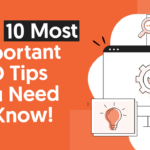The world of work is fast-changing, and data science is one of the fastest-growing fields across every industry. Organizations are becoming aware of the field and are using them to interpret data and provide insightful recommendations to improve their business outcomes. The demand for data scientists is enormous.
According to a US Bureau of Labor Statistics report, the search for big data and mathematical science specialists will increase by 27.9% from 2016 to 2026.
If data science is something you’re interested in and you’ve been holding back, you shouldn’t delay any longer. Find out in this article what data science is, who data scientists are and how to start a career in data science.
Table of Contents
What is Data Science?
Data science is an area of study that combines the knowledge of computer science, mathematics and statistics to collect large amounts of data, analyze the data using tools and techniques, derive meaningful information and come up with actionable insights to improve business decisions.
Data science grew out of the fields of statistical analysis and data mining and the data used for analysis are often obtained from different sources and come in different formats.
Who is a Data Scientist?
A data scientist is involved in preparing data for analysis, developing strategies for analyzing data, visualizing data, using programming languages such as Python and R to build models with data and deploying models into applications.
In an organization, data scientists often work with business managers to define the problem and develop a strategy for analysis. They may also work with IT managers responsible for the infrastructure and architecture supporting data science operations.
Data scientists are in high demand because they work in both business and IT sectors. They are of relevance in organizations such as; organizations such as government agencies, tech startups, health care, and research institutions.
Based on a report by Glassdoor, a Nigerian data scientist earns an average of NGN1,462,000 per year, with an average of NGN262,000 per month and this is likely to go higher in years to come.
Data Science Lifestyle
-
Data collection
The life cycle begins with collecting raw data (structured and unstructured) from relevant sources using different methods).
-
Data storage
The data collected is then stored until it’s time for processing. Companies can use different storage systems for data depending on the type of data collected.
-
Data processing
This includes cleaning data, duplicating, transforming and combining the data using data integration technologies.
-
Data analysis
In this stage, analysis is done on the data to examine patterns, ranges, biases, etc.
-
Communicate
Here, visualization tools are used to present insights derived from analyzed data in a way that is easier for business analysts and decision-makers to understand.
Data Science Tools
The tools used in data science are highlighted below;
- Data analysis: SAS, Jupyter, R Studio, MATLAB, Excel, RapidMiner
- Data Warehousing: Informatica/ Talend, AWS Redshift
- Data visualization: Jupyter, Tableau, Cognos, RAW
- Machine Learning: Spark MLib, Mahout, Azure ML studio
Difference between Data Analysts and Data Scientists
Many people, especially those outside the field, do not know the difference between data analysts and data scientists. Data analysts and data scientists are related professionals and have something things in common; finding trends and patterns in data to help organizations make better decisions. But there are still differences between them.
Data analysts work with structured data using tools like Python, R, or SQL to solve real business problems. They are involved in acquiring, cleaning and organizing data for analysis and presenting reports in an understandable way for organizations to make decisions.
On the other hand, data scientists are considered more advanced than data analysts. They work with structured and unstructured data using more advanced data techniques to predict the future.
They are involved in gathering, processing and clearing data and designing predictive models to mine large data sets. they also develop tools and processes to analyze data accurately and write programs, and automating data collection and processing.
Do you want to receive the latest insightful posts about Tech, Business, Lifestyle and many more? Subscribe to our newsletter.
How to Become a Data Scientist
Becoming a data scientist is a way to get yourself at the forefront of new technological advances, and here’s how to go about it.
-
Get a data science degree
You can obtain a degree in data science, statistics, computer science, etc. This is not compulsory to have as you can become a data scientist without it, but having it is an advantage for you as employers generally like to see academic credentials to support your claim of being qualified for the job.
-
Get relevant skills
To become and succeed as a data scientist, you need to have a mix of both hard and soft skills. The hard skills you need include;
- Database: You should have a good grasp and understanding of how databases work and how to manage and extract data from them.
- Programming: To execute a data science project, some level of programming is required. Programming languages such as Python and R are the most commonly used.
- Machine learning: The backbone of data science is machine learning. As a data scientist, you need a good knowledge of Machine Learning.
- Modelling: Mathematical models enable you to make predictions and quick calculations on data. Through it, you can identify the most suitable algorithm to solve a given problem.
- Statistics: Statistics is at the core of data science. It helps in the extraction and analysis of data and to obtain more meaningful results.
The soft skills you should get include:
- Communication
- Storytelling
- Teamwork
- Critical thinking etc.
Read also: An Insightful Guide to Storytelling in Business Communication.
-
Build projects
As you begin to acquire skills, practice your skills by building projects. And these projects don’t have to be complex ones. Building projects help you to practice your skills and understand real data science work and also serves as a portfolio to show potential employers.
This helps you stand out amongst other applicants. To offer you an extra tip here, build projects related to the industry you want to work in. It increases your chances of getting a role in that sector.
-
Take an internship or apply for jobs
Once you have your skills, you can start applying for internships or jobs. Create a strong resume and portfolio to increase your chances of getting these jobs. Here you’ll learn how to work in a team and position yourself for more senior positions.
-
Join communities and attend boot camps
When you join communities, you find other people to learn from, strengthening your knowledge and your profile and opportunities. It’s also a way to get support, resources. etc.
You can also engage with other data scientists through boot camps, events, conferences, etc. Bootcamps are educational programs that help you acquire critical data science skills such as machine learning, data visualization, etc. They are also a means to expand your network.
-
Consider a specialization
You can take this further by specializing in a particular industry or developing strong machine learning and database management skills. Through this, you can position yourself as an expert and increase your earnings.
-
Build your personal brand
Make yourself discoverable and accessible by building your personal brand online. You can do this by updating your social media platforms and letting people know what you do. You can also start a blog or newsletter that provides useful information to your audience on data science.
Conclusion
Data science has become essential to many industries today; using it to grow their business and increase customer satisfaction. The demand for data scientists is high, as the world generates a massive amount of data daily. Becoming a data scientist is neither easy nor hard. If you are ready to commit to it and give it your all, please go for it.
Oluwanifemi Akintomide edited this piece.
We believe this was helpful to you. Let’s know your thoughts in the comment or speak to us on Whatsapp.
About Author
-
Oluwanifemi Akintomide is an exceptional content writer who helps brands come up with impressive content that engages their audience and turns them into loyal customers.
She has interests in personal growth and development, entrepreneurship, and lifestyle.
Latest entries
 LifestyleSeptember 19, 2023How to Write a Biography: 9 Tips That Will Guide You
LifestyleSeptember 19, 2023How to Write a Biography: 9 Tips That Will Guide You CareerJuly 31, 2023What is Data Science? All You Need to Know
CareerJuly 31, 2023What is Data Science? All You Need to Know Business InsightsApril 22, 202310 Ways to Safeguard Your Nigerian Business from the Effects of Inflation
Business InsightsApril 22, 202310 Ways to Safeguard Your Nigerian Business from the Effects of Inflation FreelancingAugust 14, 202210 SEO Tips To Improve Your Website Ranking
FreelancingAugust 14, 202210 SEO Tips To Improve Your Website Ranking

